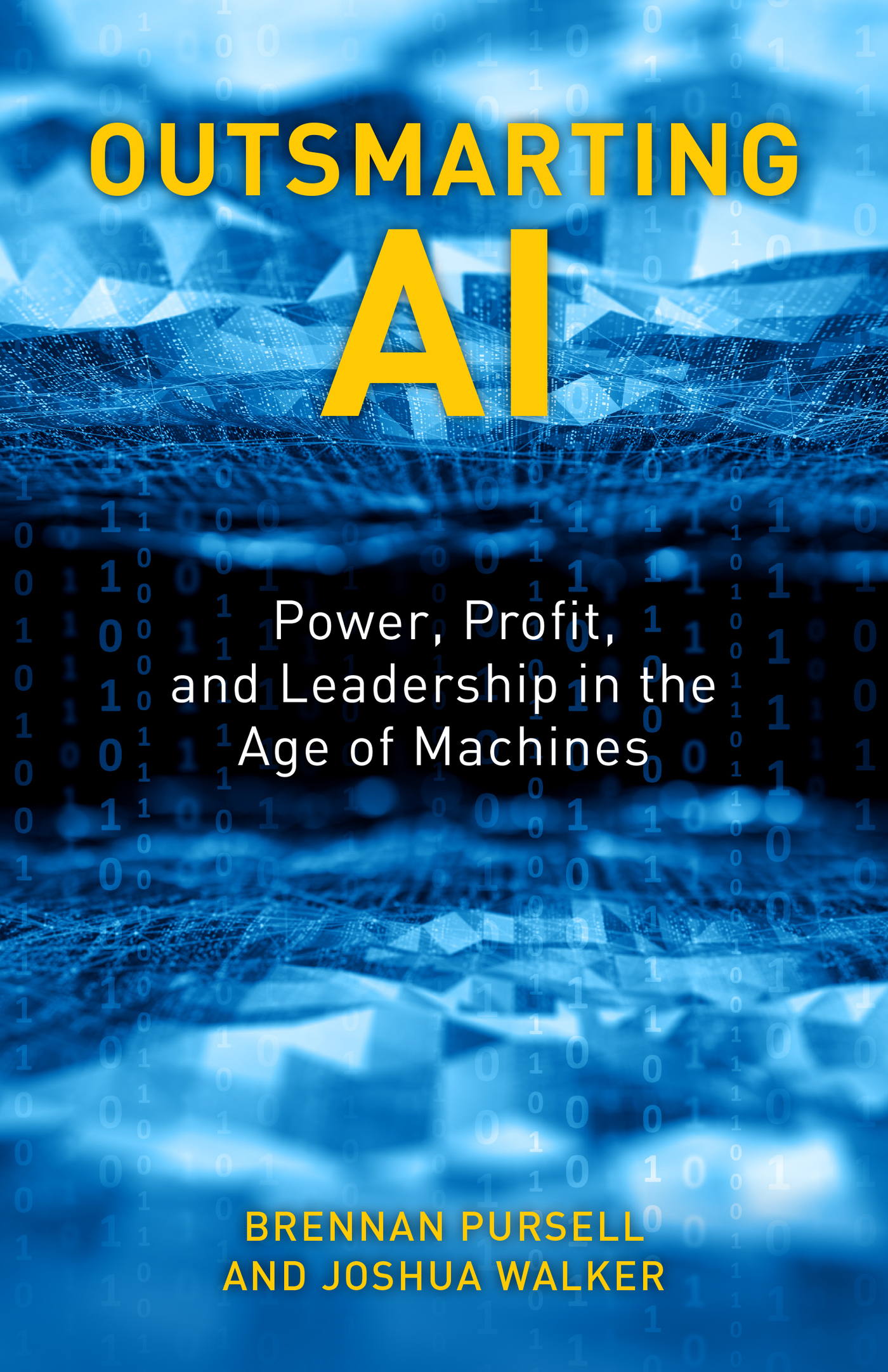Outsmarting AI
Outsmarting AI
Power, Profit, and Leadership
in the Age of Machines
Brennan Pursell and Joshua Walker
ROWMAN & LITTLEFIELD
Lanham Boulder New York London
Published by Rowman & Littlefield
An imprint of The Rowman & Littlefield Publishing Group, Inc.
4501 Forbes Boulevard, Suite 200, Lanham, Maryland 20706
www.rowman.com
6 Tinworth Street, London SE11 5AL, United Kingdom
Copyright 2020 by Brennan Pursell and Joshua Walker
All rights reserved. No part of this book may be reproduced in any form or by any electronic or mechanical means, including information storage and retrieval systems, without written permission from the publisher, except by a reviewer who may quote passages in a review.
British Library Cataloguing in Publication Information Available
Library of Congress Cataloging-in-Publication Data
Names: Pursell, Brennan C., 1967- author. | Walker, Joshua, author.
Title: Outsmarting AI : power, profit, and leadership in the age of machines / Brennan Pursell and Joshua Walker.
Other titles: Outsmarting artificial intelligence
Description: Lanham : Rowman & Littlefield, [2020] | Includes bibliographical references and index. | Summary: "Artificial Intelligence is no longer a science fiction daydream, but an inevitable future technology that will affect our lives in and out of the workplace. Brennan Pursell and Joshua Walker separate the myths from the facts about adapting AI to boost bottom lines no matter the type of business"-- Provided by publisher.
Identifiers: LCCN 2020010455 (print) | LCCN 2020010456 (ebook) | ISBN 9781538136249 (cloth) | ISBN 9781538136256 (epub)
Subjects: LCSH: Artificial intelligence.
Classification: LCC Q335 .P87 2020 (print) | LCC Q335 (ebook) | DDC 658/.0563--dc23
LC record available at https://lccn.loc.gov/2020010455
LC ebook record available at https://lccn.loc.gov/2020010456
 TM The paper used in this publication meets the minimum requirements of American National Standard for Information SciencesPermanence of Paper for Printed Library Materials, ANSI/NISO Z39.48-1992.
TM The paper used in this publication meets the minimum requirements of American National Standard for Information SciencesPermanence of Paper for Printed Library Materials, ANSI/NISO Z39.48-1992.
Foreword
Sean Kanuck, former US National Intelligence Officer for Cyber Issues
Everyone needs to grasp the impact of emerging technologies on their lives, organizations, and societies in order to survive and prosper. The impending combination of information technology (IT), nanotechnology, and biotechnology will literally change life as we know itin almost every respect. The scale and scope of that change will be monumental. Not since mankind gained command over fire have humans been in an equally powerful position to transform our own existence. The ability to cook food altered our bodies, and the ability to forge metal defined early cultures. But, at the same time, certain aspects of our identity and experience remained constant (e.g., reproduction, consciousness, mortality). The same will be true for the foreseeable future of this technological revolution.
Moreover, the exigencies of climate change and global pandemics will only accelerate the pace of change. The systemic sources and adverse consequences of increasingly violent weather patterns, ecological disruptions of flora and fauna, novel diseases, drought, and famine are undeniably linked to one another. People must develop a better understanding of how our planet worksas well as how our own bodies workto learn how we can better manage resources in a sustainable fashion for public health and welfare. That will require diagnostic sensing and data processing at hitherto unprecedented levels.
The great IT advances being discussed today include the Internet of Things (IoT), blockchain, quantum computing, and artificial intelligence (AI). Among those, AI perhaps holds the most promise and is also often the most misunderstood. I am honored and privileged to write this foreword for a book that endeavors to simply and accurately convey both the current state and future potential of AI for nontechnical audiences. This book serves an important purpose in making complex issues accessible and understandable. It also places AI in the appropriate context for a number of business scenarios and applications. By sharing these important insights, it will help empower a wide range of enterprises to benefit from those innovations.
As a strategic analyst and business consultant, I offer that AI will be in an elite class of technologies that truly live up to the hypebut that will take time. I concur with those who claim that AI will be as transformative as the harnessing of electricity, and moreover, that we cannot even begin to predict the multifarious applications that it will enable. For who could have foretold Benjamin Franklin, Alessandro Volta, Michael Faraday, Georg Ohm, or Thomas Edison the uses to which modern society would put their discoveries? But, while we may lack specificity about the future, we can recognize certain principles and begin designing frameworks to leverage new capabilities. For corporate executives, investors, and entrepreneurs alike, that means preparing for the marketplace of tomorrow. By way of example, we are already seeing dramatic changes to teleworking, logistical supply chains, and public health procedures as a result of applying IT solutions, including AI, to enable social distancing, home delivery, and contact tracing in the post-COVID business world.
The very first step in capitalizing on the potential of AI is to realize that it is not just a technology issue. How enterprises purchase and employ it will soon be a central business strategy issue. We do not talk about companies that do or do not have electricity; we talk about how they utilize it and how much they have to pay for it. The same is already true of the Internet (including cloud computing resources), and the same will also soon be true of AI. AI is more than a topic for the chief technology officer; it is a compelling issue for the entire C-Suite (i.e., chief executive officer, chief strategy officer, chief product officer, chief financial officer, chief risk officer, etc.) and every board of directors.
The second framing concept I would like to offer is that all data are not created equal. AI algorithms require troves of data to operate, and in essence, they are what they eat. In other words, the quality (e.g., validity, utility, etc.) of an AI algorithms outputs will be dependent on the quality (e.g., volume, accuracy, etc.) of its inputsincluding during the training phase of machine learning. Not all raw data should be viewed as useful information. In many cases, it needs to be structured, formatted, and checked for accuracy before it is fed into an algorithm. For that reason, I have likened data to seawater: More than 70 percent of planet Earth is covered by oceans, but we must expend time and energy to purify that water before it can be used to quench our thirst or hydrate our bodies. Where your organization obtains and how it handles its data will matter deeply.
Those first two principles of AI management converge on a third issue of utmost importance: law and ethics. Once we realize that AI algorithms harbor the innate biases of their programmers and can generate (and perpetuate) erroneous conclusions based on flawed data sets, we must also acknowledge a social responsibility to minimize those errors. Racial profiling and misogyny are two adverse factors that have already been proven to propagate among ill-managed AI programs. General counsels will have an interest in limiting an organizations possible legal liability, while human resource managers will have a desire to fully capitalize on the potential of a diverse workforce. In this case, doing what is right will also help the bottom line.
Next page
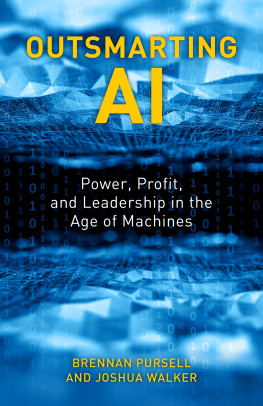


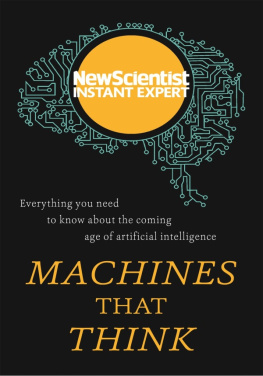
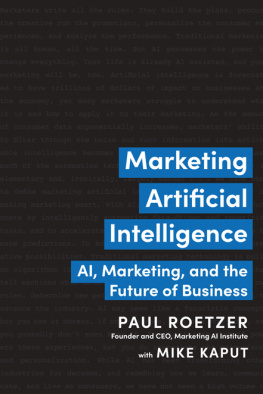
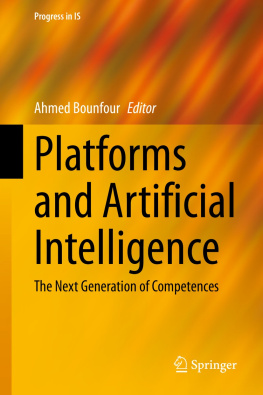
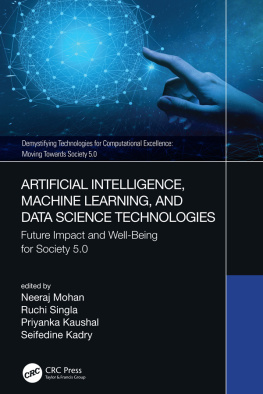
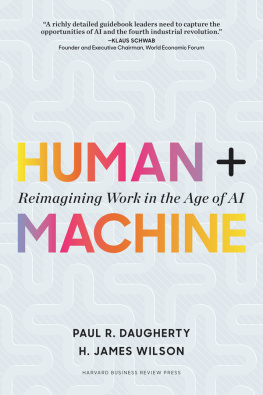
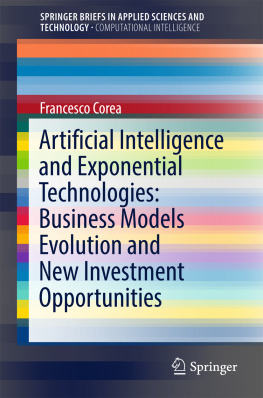
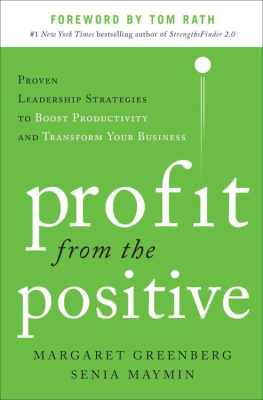
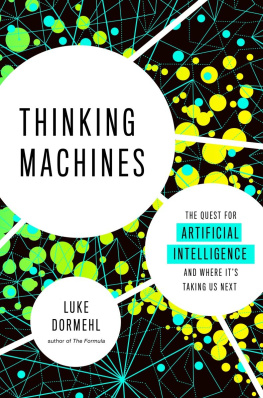
 TM The paper used in this publication meets the minimum requirements of American National Standard for Information SciencesPermanence of Paper for Printed Library Materials, ANSI/NISO Z39.48-1992.
TM The paper used in this publication meets the minimum requirements of American National Standard for Information SciencesPermanence of Paper for Printed Library Materials, ANSI/NISO Z39.48-1992.